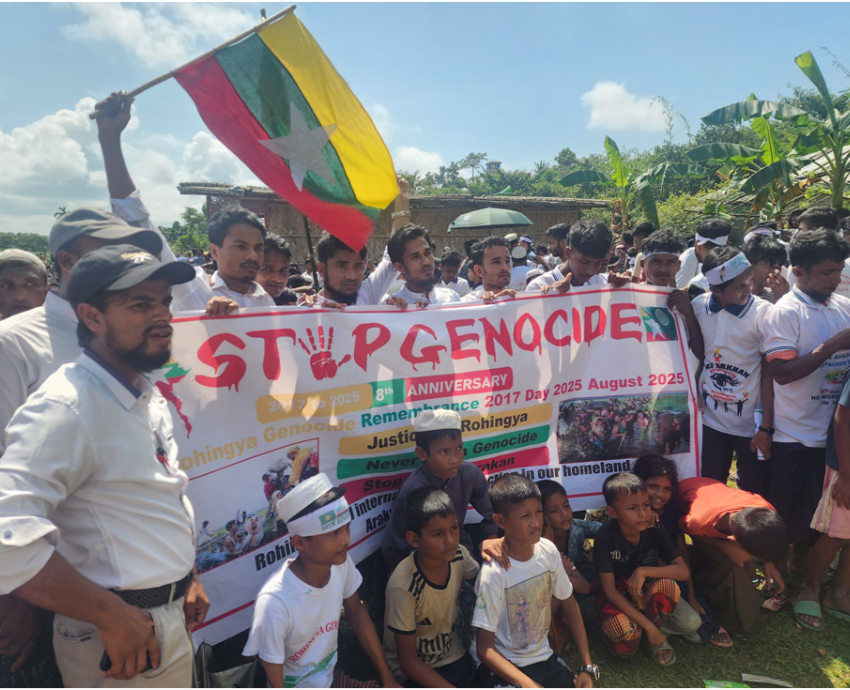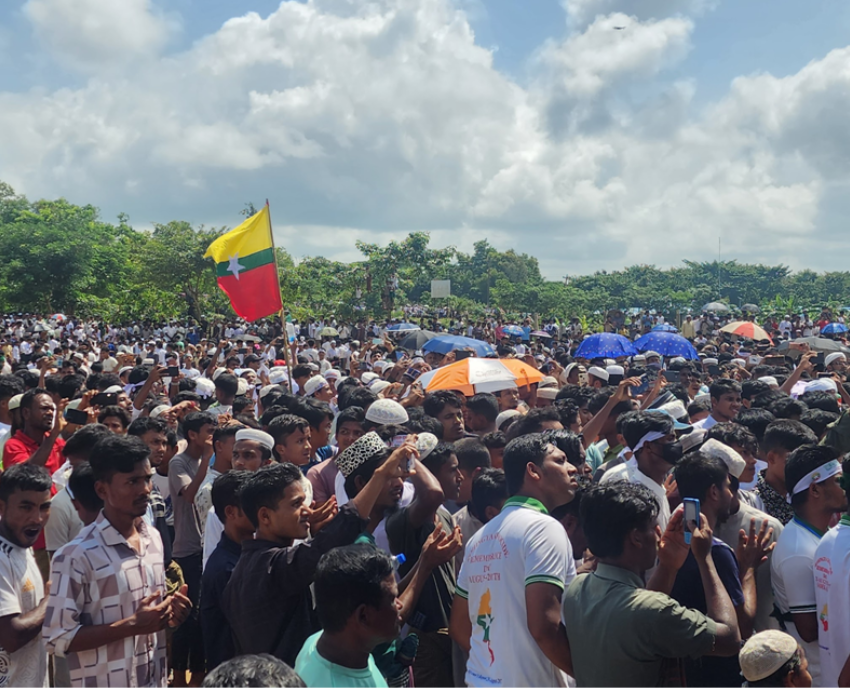
The Rohingya genocide began in 1962 in Myanmar (previously known as Burma). Since then, our people have endured repeated waves of violence — in 1978, 1990, 1991, 1994, 2012, 2016, 2017 and most recently last year. Among these, the campaign of August 25, 2017, remains the most devastating. It was the largest and deadliest genocidal operation against the Rohingya, a dark chapter etched into our collective memory.
Eight years have passed, yet the wounds inflicted by the Burmese military and Rakhine extremists remain painfully fresh. The Rohingya genocide is not just history — it is our ongoing pain, our unspeakable suffering, our looted homes and lands, our shattered dreams. It was the day we were forced to flee our homeland. It was the day thousands of our brothers and sisters were massacred. Women and underaged girls were brutally gang-raped before their families. Nearly 400 villages were reduced to ashes. It was the day our people endured unimaginable atrocities — mass killings, torture and forced displacement — becoming refugees against their will.
We mourn, and we remember the lives lost, the families torn apart, the dignity denied. On this eighth anniversary, we cry for justice. We demand accountability. We hold on to hope that one day the world will stand with us — not in silence, but in action.
The Rohingya deserve dignity, safety and a future free from fear. We refuse to say “never again”, because it has happened again and again. Since 1962, we have faced a systematic, pre-planned genocide — and it has not ended.
In 2017, more than 390 Rohingya villages were destroyed. Mass killings, widespread rape and the systematic burning of homes forced more than 700,000 Rohingya to flee into Bangladesh while hundreds of thousands remain internally displaced inside Myanmar.
The so-called “clearance operation” was the culmination of decades of persecution — yet the genocide still continues. The journey to safety is marked by perilous sea crossings, human trafficking and militarised borders that criminalise survival itself. The world treats our existence as a burden, revealing the moral bankruptcy of borders and of capitalism itself.

Today, we mark the eighth year of remembering the genocide of 2017. Yet, every year, conditions worsen. Cuts in international aid — particularly under the far-right leadership of Unites States President Donald Trump, which slashed US Agency for International Development funding — have left Rohingya refugees in Bangladesh surviving on as little as $6 a month. Refugees are denied access to work, education, healthcare and freedom of movement. More than a million Rohingya in Cox’s Bazar live in a state of manufactured poverty, fenced in by barbed wire, abandoned by those who speak of human rights but act in betrayal.
The global rise of far-right politics fuels this violence. Governments build walls, cut aid and spread Islamophobia while continuing business deals with Myanmar’s junta. Since the 2021 military coup, the junta has imported over US $1 billion worth of weapons, nearly half from Russia, while Western governments quietly ease sanctions on junta-linked companies. Genocide has become normalised — an “inevitable” product of capitalism’s decay — while international NGOs profit from managing suffering, turning our lives into a humanitarian industry.
Eight years on, the Rohingya continue to resist. Across the world, Rohingya activists and communities struggle for freedom, rights and dignity. They confront not only the Burmese junta but also local militias, corrupt authorities and global systems of exclusion. They fight alongside other oppressed peoples: Palestinians resisting genocide, Sudanese facing hunger, Congolese miners enslaved by global supply chains, Indigenous peoples defending their lands and workers across the globe battling exploitation. Our struggles are bound together by a single system of oppression: capitalism.
The Rohingya fight with urgency, not abstraction. Despite facing extreme exclusion and poverty, they organise for community education, healthcare, disaster relief and development. Their hope is not naïve — it is rooted in survival, in a demand for solidarity and in a vision of dignity.
No Rohingya will be free until all oppressed people are free. That is why we must demand: resettlement opportunities against racist immigration regimes; aid, not weapons — a stop to military spending and arms sales to Myanmar; full rights and dignity for refugees in Bangladesh, including education, food security, healthcare and freedom of movement; and the right of return to our homeland in Arakan, with citizenship and safety.
Our struggle cannot be isolated. It is an international challenge to take down capitalism, the rotten system that produces these horrific genocides. This system deprives us of the basic necessities to survive, while billionaires frolic unimpeded.
The freedom of the Rohingya is tied to the freedom of all oppressed peoples. Genocide anywhere is a crime against humanity everywhere.
Eight years since the massacres, the world must decide: will we remain silent against the complicity of our governments and the corporations profiting from this violence, or will we act?
The Rohingya’s demand is simple: justice, rights and freedom.
Free the Rohingya. Free Arakan. Free Burma.
[Contact the author at [email protected].]